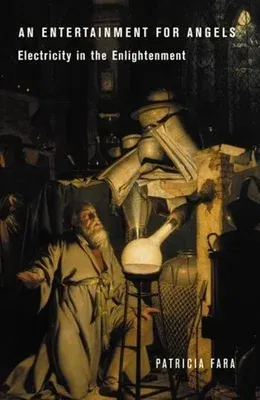An Entertainment for Angels, rather than for Men, one observer called
electricity, and it proved to be the most significant scientific
discovery of the Enlightenment. Lecturers attracted huge audiences who
marveled at sparkling fountains, flaming drinks, pirouetting dancers,
and electrified boys. Flamboyant experimenters made chains of soldiers
leap into the air, while wealthy women titillated their admirers with a
sensational electric kiss. Optimists predicted that this strange power
of nature would cure illnesses, improve crop production, even bring the
dead back to life. An Entertainment for Angels tells the story of how
electricity charged the eighteenth-century imagination. With
contemporary illustrations and engaging prose, Patricia Fara vividly
portrays the struggles to understand the unusual and exciting effects
that electrical experiments were producing.
One of the heroes of the story is Benjamin Franklin, renowned on both
sides of the Atlantic as an expert on electricity, who introduced
lightning rods to protect tall buildings, pioneered techniques to treat
paralyzed patients, and developed one of the most successful
explanations of this mysterious phenomenon. Others include Luigi
Galvani, whose electrical research on frogs and animals makes for grisly
reading but led to the discovery of direct current electricity; and
Alessandro Volta, who--with Napoleon's enthusiastic support--became one
of Europe's leading scientific practitioners and invented the world's
first battery.

